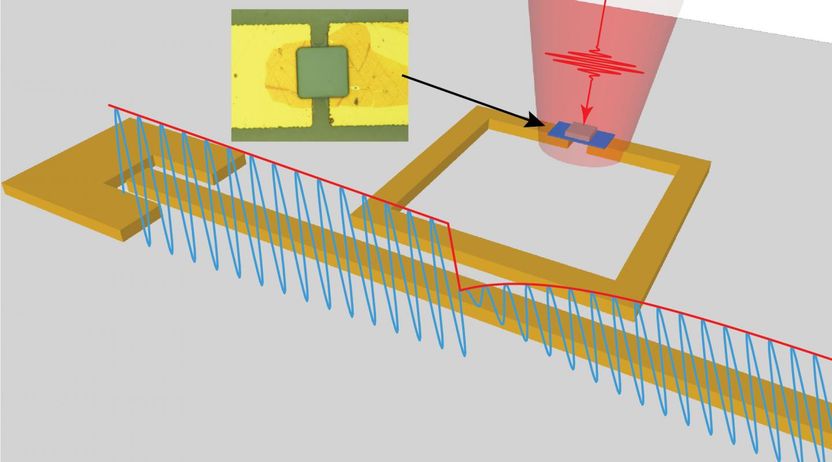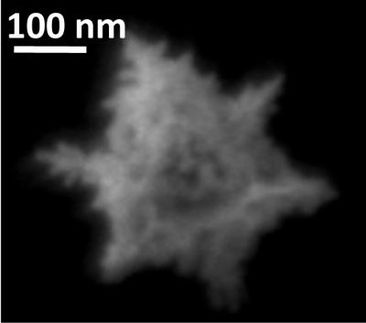Giving Platinum Catalysts a Golden Boost for Fuel Cells
platinum might outweigh gold in the jewelry market, but as part of an ongoing effort to produce efficient and affordable fuel cells, scientists at the U.S. Department of Energy's (DOE) Brookhaven National Laboratory are studying how gold atoms might enhance the value of the pricier metal. Specifically, they're looking for ways to use gold to prevent the destruction of platinum in the chemical reactions that take place in fuel cells.
Platinum is the most efficient electrocatalyst for accelerating chemical reactions in fuel cells. However, in reactions during the stop-and-go driving of a fuel-cell-powered electric car, the platinum dissolves. In accelerated tests, as much as 45 percent of the catalyst can be lost during five days. "Platinum is by far the best single component catalyst for the oxygen reduction reaction, and we have to find a way to protect it," Brookhaven chemist Radoslav Adzic said. Under lab conditions that imitate the environment of a fuel cell, Adzic and a team of Brookhaven researchers, including Junliang Zhang, Kotaro Sasaki, and Eli Sutter, added gold clusters to a platinum electrocatalyst, which kept it intact during an accelerated stability test that simulates stop-and-go driving in an electric car.
In the unique method used at Brookhaven, researchers place gold on carbon-supported platinum nanoparticles by displacing a single layer of copper and subject it to several sweeps of voltage. The copper is needed to reduce the charged gold particles to neutral atoms; it then conveniently forms a monolayer of platinum by an adsorption process, the binding of molecules or particles to a surface. Using x-rays as probes at Brookhaven's National Synchrotron Light Source, a scanning transmission microscope at Brookhaven's Center for Functional Nanomaterials, and electrochemical techniques in the laboratory, the scientists can show that less platinum is oxidized with this method. As predicted, during laboratory testing, the platinum electrocatalyst remains stable when under conditions mimicking stop-and-go driving conditions. Next, researchers will test the catalyst in real fuel cells at the DOE's Los Alamos National Laboratory in New Mexico.
"The very promising properties of fuel cells have been known for many decades," Adzic said. "But it's only now that we can look at the activities and qualities of the catalysts and find something stable enough to be used in cars or residential applications."
Most read news
Topics
Organizations
Other news from the department science

Get the analytics and lab tech industry in your inbox
By submitting this form you agree that LUMITOS AG will send you the newsletter(s) selected above by email. Your data will not be passed on to third parties. Your data will be stored and processed in accordance with our data protection regulations. LUMITOS may contact you by email for the purpose of advertising or market and opinion surveys. You can revoke your consent at any time without giving reasons to LUMITOS AG, Ernst-Augustin-Str. 2, 12489 Berlin, Germany or by e-mail at revoke@lumitos.com with effect for the future. In addition, each email contains a link to unsubscribe from the corresponding newsletter.
Most read news
More news from our other portals
Last viewed contents
Yale University and Leica Microsystems Partner to Establish Microscopy Center of Excellence
NUS partners FIND to discover novel biomarkers for Tuberculosis detection

Measurement of semiconductor material quality is now 100,000 times more sensitive
























































